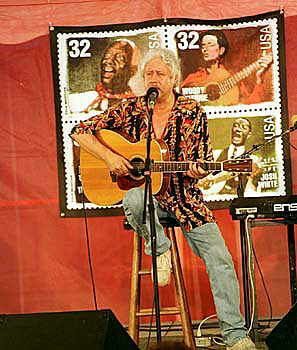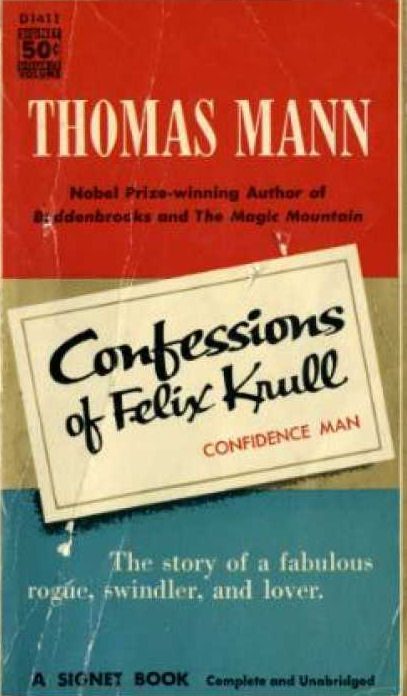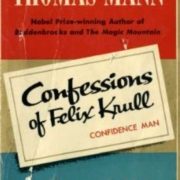THE CONFESSIONS OF ARLO GUTHRIE, CONFIDENCE MAN
THE CONFESSIONS OF ARLO GUTHRIE, CONFIDENCE MAN
FOR 50TH ANNIVERSARY TOUR
DISNEY HALL, APRIL 6, 2015
 The greatest German novelist of the 20th Century started a novel in 1911 that he didn’t finish until 1954—about a confidence man named Felix Krull who pulls his greatest con against a medical officer in charge of his military physical to process him for conscription into the army. Krull tries to beat the system by feigning a serious illness (epilepsy) so as to be disqualified from serving. In the process he pretends that he is entirely pro-military and wants nothing more than to be drafted and serve his country—even promoting the lowly officer up the ranks to that of major before the physical is completed. The scene he creates is so absurd as to defy belief, inspire gut-wrenching laughter and finally disqualify him from the army. The novel is entitled The Confessions of Felix Krull, Confidence Man.
The greatest German novelist of the 20th Century started a novel in 1911 that he didn’t finish until 1954—about a confidence man named Felix Krull who pulls his greatest con against a medical officer in charge of his military physical to process him for conscription into the army. Krull tries to beat the system by feigning a serious illness (epilepsy) so as to be disqualified from serving. In the process he pretends that he is entirely pro-military and wants nothing more than to be drafted and serve his country—even promoting the lowly officer up the ranks to that of major before the physical is completed. The scene he creates is so absurd as to defy belief, inspire gut-wrenching laughter and finally disqualify him from the army. The novel is entitled The Confessions of Felix Krull, Confidence Man.
In 1957, Thomas Mann’s novel was turned into a movie, written by Mann’s daughter Erika Mann, a lesbian artist who had married the gay poet W.H. Auden under false pretenses (on both sides) during World War II to avoid having to stay in Germany and serve in the army. The dissimulative art of the con-man seemed to run in the family. Being married to Auden gave her a British passport, got her out of Germany and the army, and very likely saved her life. She remained married to him throughout her life, even though they never lived together as man and wife.
In 1965, an American folk singer in effect adapted the brilliant central comic conceit in the novel into a story song about a Massachusetts hippie seeking to dodge the draft and having to serve in the Vietnam War. He too goes into the required physical and while pretending to want to serve succeeds in exaggerating his desire to kill the enemy to such a degree that he finally convinces the doctor doing the examination that he is insane—with the same result as in Mann’s comic masterpiece.
 The folk singer was Arlo Guthrie and the story song was Alice’s Restaurant, though it might as well have been called The Confessions of Arlo Guthrie, Confidence Man. It’s an equally brilliant take on Thomas Mann’s unfinished novel—an antiwar masterpiece of rare comic invention and enduring appeal. It’s hard to accept that we’ve so lost track of the time (and the times) that Alice’s 50th Anniversary has snuck up on us and Arlo has embarked upon a 50th Anniversary Tour to commemorate his amazing encounter with the draft board that didn’t have a clue.
The folk singer was Arlo Guthrie and the story song was Alice’s Restaurant, though it might as well have been called The Confessions of Arlo Guthrie, Confidence Man. It’s an equally brilliant take on Thomas Mann’s unfinished novel—an antiwar masterpiece of rare comic invention and enduring appeal. It’s hard to accept that we’ve so lost track of the time (and the times) that Alice’s 50th Anniversary has snuck up on us and Arlo has embarked upon a 50th Anniversary Tour to commemorate his amazing encounter with the draft board that didn’t have a clue.
It’s had a rocky road getting this far, and one time in the middle of a broadcast of Guthrie’s Alice’s Restaurant murderous bombers blasted him right off the air and destroyed the newly built Pacifica Station in Houston, Texas, KPFT. Who were they? Muslim extremists? No; an Islamic hate group? No; Al Qaeda? No.
It was the good ol’ American KKK, the Ku Klux Klan, that’s who—in 1970. They were determined to prevent an antiwar radio station (sister station of KPFK in Los Angeles) from operating in the Lone Star State. And Good Ol’ Boys like outlaws Willie Nelson and Waylon Jennings uttered not one word of protest. Arlo was hung out to dry with the rest of the hippies who were trying to give peace a chance. Arlo was the original outlaw, even if his crime was only littering—Charlie Hebdo with a guitar.
But wait: this story has a Hollywood ending: Local progressive volunteers wasted no time in rebuilding the station and transmitter and when it was complete Arlo himself came out to Houston to finish his 18 ½ minute rhapsodic episodic antiwar anthem in person. It was the most important performance of his career—far from the Woodstock Peace & Love Fest where he had performed it to welcoming crowds the year before. Arlo walked into the Lion’s Den and faced down the primitive beasts of the jungle with just a guitar for a weapon—and the greatest satirical story song ever.
But let Amy Goodman, host of Pacifica’s flagship program Democracy Now!, tell it like it was: “The Houston station, KPFT, in 1970, it went on the air, and within two weeks, it’s the only radio station in the country that was blown up. It was blown up by the Ku Klux Klan. They strapped dynamite to the base of the transmitter, and they blew it to smithereens. When the station got back on their feet, rebuilt their transmitter, the Klan blew it up again. Oh, they blew up the station right in the middle of Arlo Guthrie singing Alice’s Restaurant. So, finally, the third time when they rebuilt their station, it became a national event. PBS was broadcasting it going back on the air, and Arlo came back to Houston to finish Alice’s Restaurant.
Return with us now to those thrilling days of yesteryear; Arlo rides again on the Alice’s Restaurant 50th Anniversary Tour, which lands at Disney Hall on Monday, April 6. In the afterglow of Julianne Moore winning the Oscar for Best Actress in Still Alice, what better time to honor the struggle against cultural Alzheimer’s and celebrate the original Alice.
It’s outgrown its britches, you might say, for the first time he played it in 1965 at a small Greenwich Village folk club there were only 12 people in the audience, including his mother, Marjorie Mazia Guthrie, Woody’s second wife. “Don’t be disappointed,” she told her son; “12 disciples are all Jesus had when he started out—it’s a good omen!” And this from a Jewish mother!
In the intervening years Arlo has become America’s favorite folk singer, carrying on the tradition he inherited from his father, from Pete Seeger and Leadbelly, King of the 12-String Guitar who dandled him on his knee as a youngster in Coney Island. Woody is gone, Leadbelly is gone, and Pete is now gone—so Arlo is the last of a line, though he has raised a small army of folk musicians himself—with his late wife Jackie.
Sarah Lee and Abe will be backing him up this time around. The last time Arlo came to town he gave a beautiful tribute to Leadbelly as well as to Woody and Pete, so this promises to be a legacy concert in all senses—including Arlo’s own great contribution to the folk tradition—the cante-fable Alice’s Restaurant. At Disney Hall he will also be backed up by the house band—that would be the LA Philharmonic Orchestra, with whom Arlo will perform selections from An American Scrapbook—his own symphonic arrangements of American folk songs. You won’t get more bang for your buck this side of Carnegie Hall. And that wasn’t even designed by Frank Gehry!
The last time Arlo came to town was four years ago in 2011 for a show at Royce Hall. I wrote a preview at the time which advocated that Arlo be awarded the Kennedy Center Mark Twain Prize for American Humor—which has since been awarded four more times and still has not gotten around to Arlo. I called it “Mark Twain with a Guitar,” and Arlo has not gotten any less funny in the intervening years.
If anything he is even funnier, having pointed out in the still unsolved mystery of what Nixon was trying to cover up in the missing 18’ 34” from the White House tapes that the only thing he knew of that was exactly 18’ 34” long was—are you sitting down?—Alice’s Restaurant! So on top of being America’s favorite folk singer Arlo has also solved the most tantalizing mystery of 20th Century White House scandals—what Nixon was listening to when the infamous tape recorder was turned off. Now that the Nixon Presidential Library has finally been taken out of the sole hands of the Nixon Foundation and is at least partly administered by the National Archives perhaps Alice’s Restaurant can now be restored to its rightful place in American History—the Nixon Library. It is thus the perfect time for Arlo Guthrie to embark on this Alice’s Restaurant 50th Anniversary Tour—history has caught up with his most notorious song.
You’ll also hear some of his father’s songs—including one now celebrating its’ 75th anniversary—written this week in 1940—This Land Is Your Land. When the US Post Office honored Woody Guthrie with a 1st Class US Stamp they invited Arlo to Washington for the unveiling; as he looked around the walls with various portraits of America’s current Ten Most Wanted on display, he quipped, “My sister and I weren’t surprised to see our father’s picture hanging in the Post Office; we were just surprised you had to pay money to get it.”
You can also be sure of hearing what John Prine called “the greatest damn train song ever written;” that would be Steve Goodman’s City of New Orleans. Arlo first heard it in Chicago at Somebody Else’s Troubles, when Prine came in to hear his show and afterwards prevailed upon him to listen to Goodman’s just-written song. Arlo did, and never regretted it. He even added one chord to it—the modulated Bb (in the key of C) on the word “gone” in the line “gone 500 hundred miles when the day is done.” It’s a great chord, and probably took a piano player to think of it—which Arlo is. It became Arlo’s biggest hit record, and went on to become an American standard, recorded by Willie Nelson and many others.
The song also became a powerful organizing symbol in the aftermath of Hurricane Katrina, when Arlo embarked on a fundraising train tour of the City of New Orleans now famous route from Kankakee, Illinois down to New Orleans. The purpose of the tour, during which Arlo and other artists did benefit concerts at every stop along the way, was to raise money to replace the thousands of musical instruments destroyed by Katrina that had belonged to students and professional musicians who could no longer earn a living. Because of Arlo’s visionary humanitarianism those instruments were replaced (at no cost to the tax payer) and music could once again be heard on Bourbon Street and in the French Quarter, where some of America’s finest musicians lived, including Fats Domino.
In terms of the power of music to heal the broken heart, Arlo’s fun(d)raising tour was probably the most meaningful expression of civic spirit and musical outreach in history. It brought people together in common cause and made us realize how much we owe to the troubadours—like Steve Goodman, John Prine, Arlo Guthrie and Louis Armstrong—and the countless nameless Dixieland Jazz bands—who have been ambassadors for peace and goodwill throughout the world. What better time than New Orleans’ national holiday, Mardi Gras (when this essay is being written) to be reminded of that fact?
And what better time to welcome Arlo back to town? You don’t want to miss the most famous Thanksgiving tale since Miles Standish and Pocahontas.
“If you want to end war and stuff,” as Arlo prophetically said a half century ago, be sure to sing along—if you can stop laughing long enough to sing.
Walk right in, it’s around the back, just a half a mile from the railroad track (Union Station, downtown LA); you can get anything you want at Alice’s Restaurant!
It’s not every day you get to experience a tale that has roots in 20th Century continental literature by a modern master like Thomas Mann, author of Death In Venice, The Magic Mountain and the brilliantly subversive The Confessions of Felix Krull, Confidence Man.
Arlo is in good company.
Arlo Guthrie will be at Disney Hall Monday, April 6; at the Irvine Barclay Theatre on April 10 and 11; and at the Santa Clarita Performing Arts Center Sunday, April 12. See their respective web sites for ticket information.
Saturday, March 28, from 1:00 to 4:00pm Ross Altman will participate in REPETE, Will Geer’s Theatricum Botanicum annual tribute to Pete Seeger at 1419 N. Topanga Canyon Blvd in Topanga Canyon. See website for information and tickets
Saturday April 11, from 10:00 to 4pm Ross Altman will participate in The City of Santa Clarita’s Earth Arbor Day Festival at Central Park (27150 Bouquet Canyon Rd); Ross goes on at 3pm.
Sunday, April 12, American Folk Music Fest Ross Altman performs.
Ross Altman has a PhD in Modern Literature; Ross may be reached at greygoosemusic@aol.com













